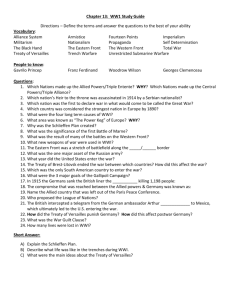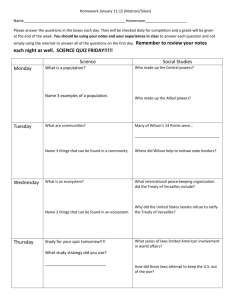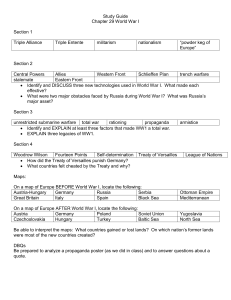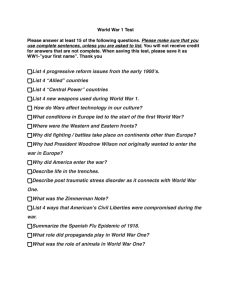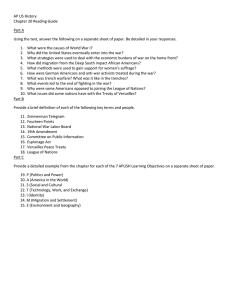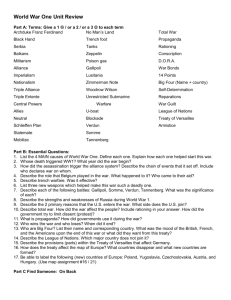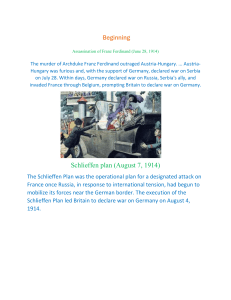Unit 8 study guide
advertisement
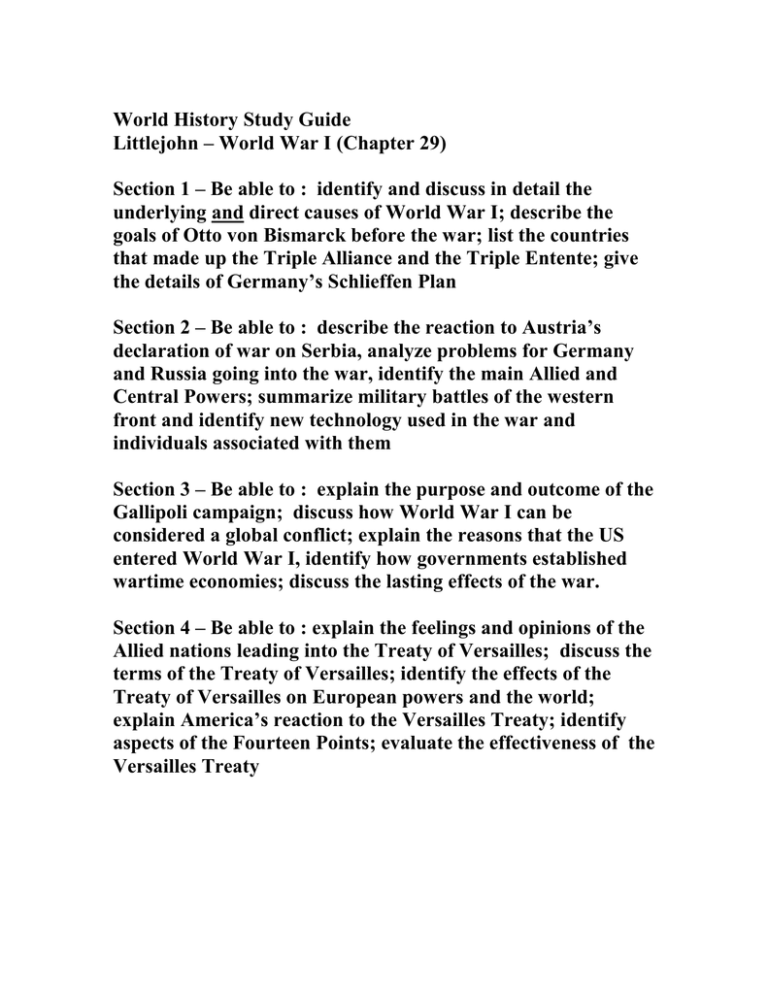
World History Study Guide Littlejohn – World War I (Chapter 29) Section 1 – Be able to : identify and discuss in detail the underlying and direct causes of World War I; describe the goals of Otto von Bismarck before the war; list the countries that made up the Triple Alliance and the Triple Entente; give the details of Germany’s Schlieffen Plan Section 2 – Be able to : describe the reaction to Austria’s declaration of war on Serbia, analyze problems for Germany and Russia going into the war, identify the main Allied and Central Powers; summarize military battles of the western front and identify new technology used in the war and individuals associated with them Section 3 – Be able to : explain the purpose and outcome of the Gallipoli campaign; discuss how World War I can be considered a global conflict; explain the reasons that the US entered World War I, identify how governments established wartime economies; discuss the lasting effects of the war. Section 4 – Be able to : explain the feelings and opinions of the Allied nations leading into the Treaty of Versailles; discuss the terms of the Treaty of Versailles; identify the effects of the Treaty of Versailles on European powers and the world; explain America’s reaction to the Versailles Treaty; identify aspects of the Fourteen Points; evaluate the effectiveness of the Versailles Treaty Terms to Know : militarism, Triple Alliance, Triple Entente, Kaiser Wilhelm II, Franz Ferdinand, Gavrilo Princip, Black Hand, “blank check”, Central Powers, Allied Powers, Schlieffen Plan, trench warfare, Battle of the Marne, Battle of Verdun, Battle of the Somme, Western Front, Manfred von Richthofen, Eddie Rickenbacker, Anthony Fokker, ace, Gallipoli Campaign, Treaty of Brest – Litovsk, unrestricted submarine warfare, Lusitania, total war, Zimmermann Note, rationing, propaganda, Georges Clemenceau, Woodrow Wilson, Fourteen Points, League of Nations, reparations, selfdetermination, war – guilt clause
